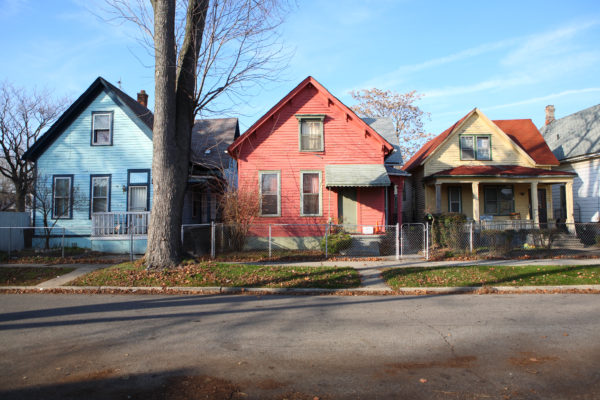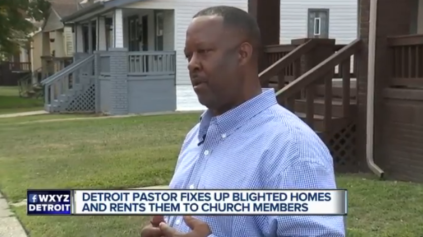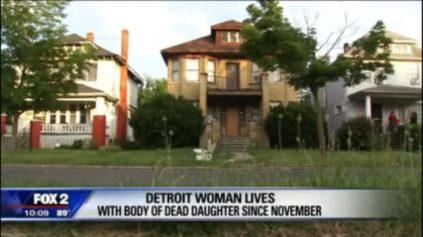The city of Detroit is being sued for overtaxing residents in predominately Black areas.
Goldman Ismail Tomaselli Brennan & Baum LLP law firm filed a lawsuit against the city, State Tax Commission and Wayne County on Thursday, reported The Detroit News. The Coalition for Property Tax Justice announced the proceedings during a press conference at City Hall on the same day.
According to the suit, residents were overcharged for property taxes between 2010 and 2017. This resulted state-ordered reassessment of all properties in Detroit in 2017. The plaintiffs are claiming that the city mailed the assessments late that year, leaving residents too little time to appeal any possible overvaluation of their new assessments.

Michigan’s constitution states a property cannot be assessed for more than 50 percent of its worth, according to Click on Detroit. However, research conducted by Chicago-Kent College of Law professor Bernadette Atuahene determined homeowers were being overassessed by 55 to 85 percent. She also determined 95 percent of low-value homes were overassessed while higher-value homes were lowballed.
Atuahene, interviewed by “Democracy Now!” last week, described the effects tax foreclosures have had on the city.
“So, the first thing I want people to know is, in Detroit, we have one in four homes that have gone through property tax foreclosure,” she said. “One in four. We haven’t seen this number of property tax foreclosures in American history since the Great Depression.”
In another study, Atuahene broke it down by race. Detroit is 85 percent Black and 40 percent of residents live under the poverty line.
“The next study we did is we looked at Wayne County. And we looked at all the municipalities of Wayne County, and there’s three that have a supermajority of African Americans, 70% or more — Detroit, Inkster and Highland Park,” she explained to “Democracy Now!”
“And each of those majority-black cities were being subjected to these unconstitutional tax assessments and foreclosures at a greater rate than the majority-white cities.”
The heart of the matter in the current is the claim that residents were not informed of the 2017 assessments in a timely manner. Anyone who had an issue with the assessment had the right to appeal, but many were not aware because they received the notices too late.
“The city has at times failed to mail tax notices to owners in a timely fashion,” the Coalition for Property Tax Justice said in a press release.
“The lawsuit specifically points to data showing that in 2017, all homeowners in Detroit were mailed their tax assessments too late to have a reasonable chance to file a tax appeal. This failure to timely mail tax notices violated homeowners’ constitutional rights.”
The lawsuit wants residents to be allowed to appeal their 2017 notices and receive compensation. It also wants to halt any current foreclosures resulting from those notices.
City Assessor Alvin Horhn brushed off the lawsuit’s claims and denied any wrongdoing.
“This is a frivolous lawsuit with claims that can be proven false with a simple Google search,” Horhn said in a statement. “The city extended the appeals period by two weeks to last the entire month of February. Numerous media outlets reported this fact based on a press release issued by the city.”


